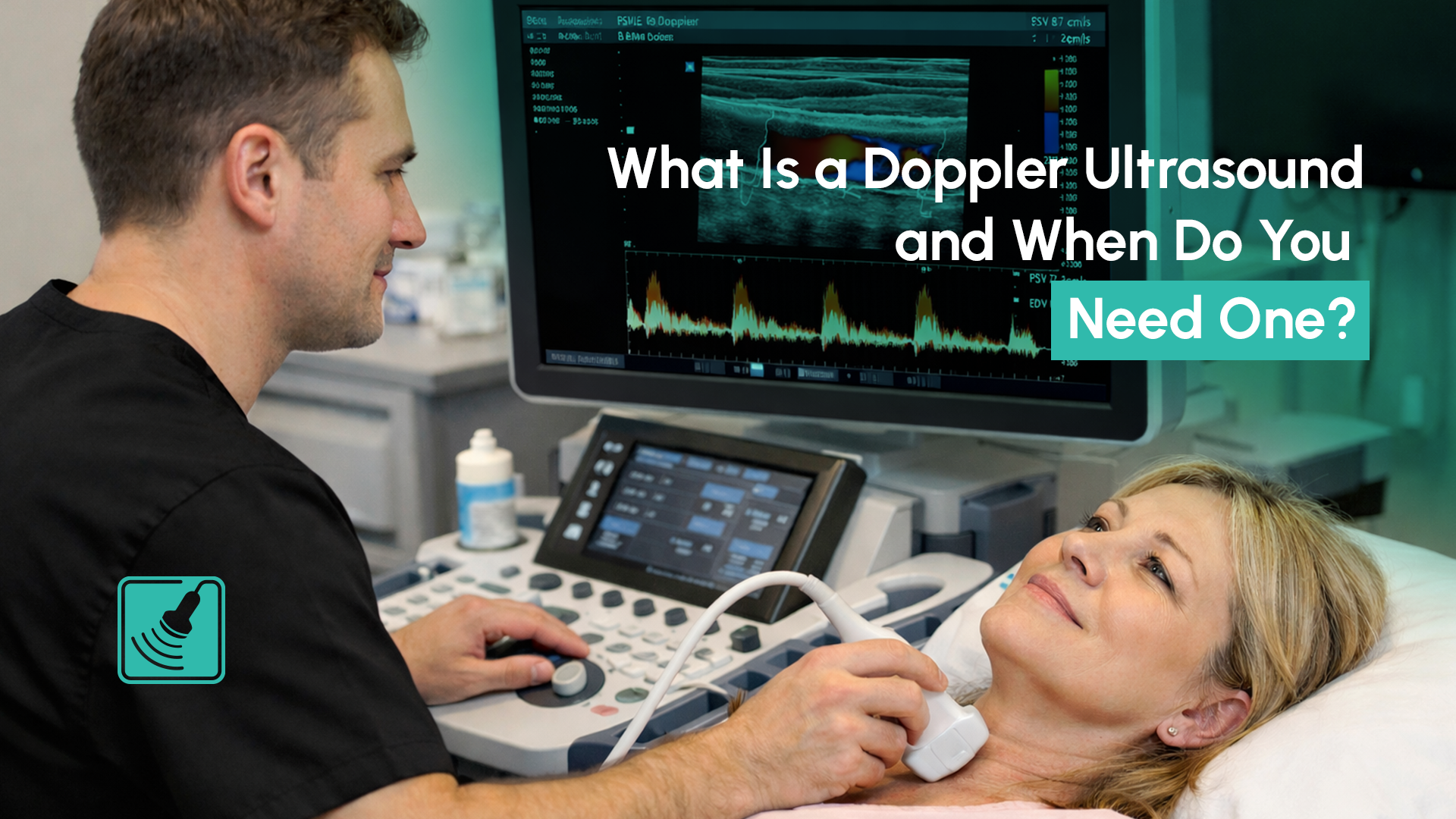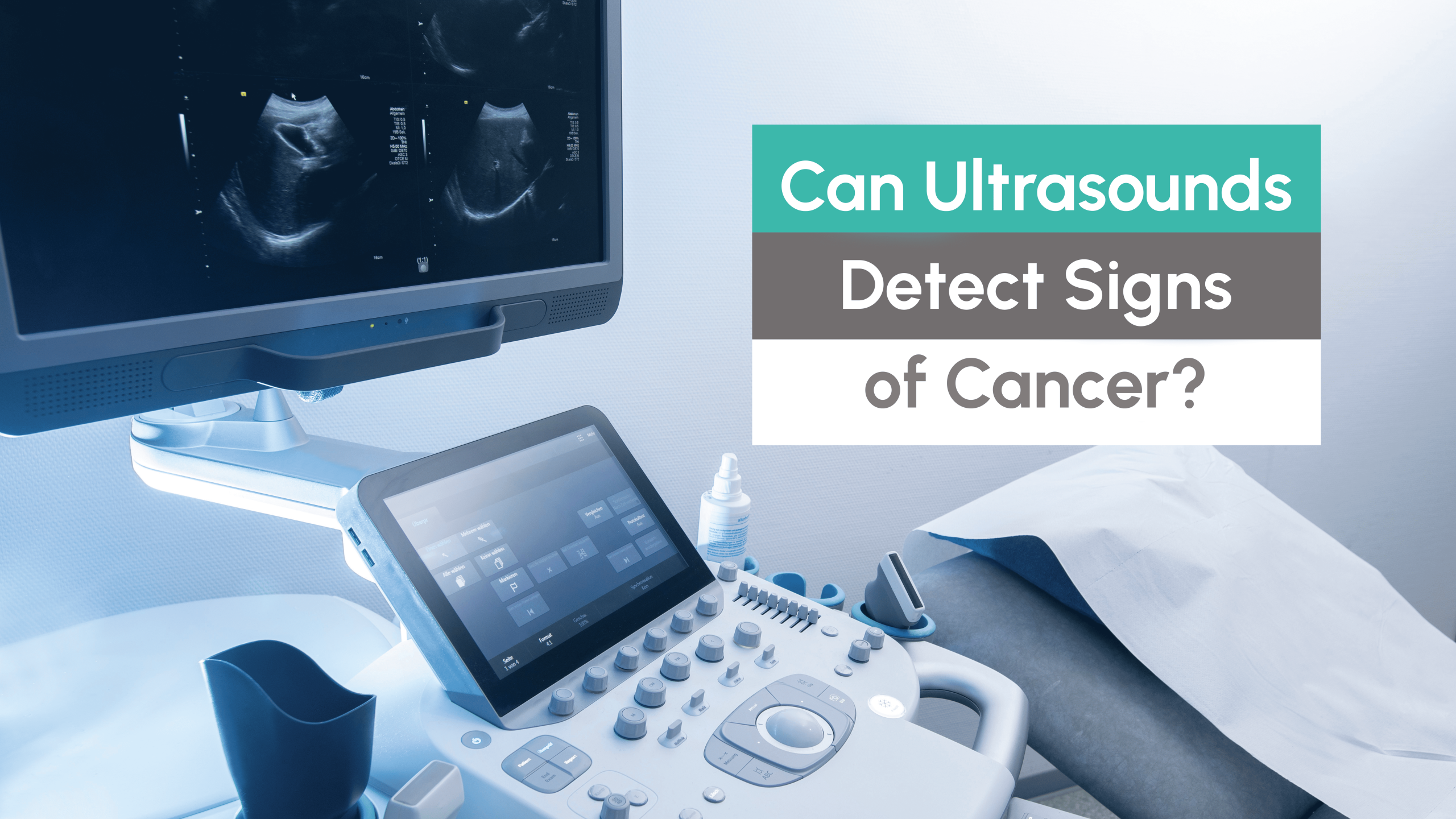

If you’ve noticed a lump, pain, or unusual symptom, it’s normal to feel concerned. Many people ask, can ultrasound detect cancer? While ultrasound can’t confirm a cancer diagnosis, it often plays an important role in identifying abnormalities that may require further testing for cancer. As a fast, non-invasive imaging tool, it helps GPs decide on next steps. In this blog, we’ll explore the link between ultrasound and cancer, and when this common scan might help guide your healthcare journey.
What Is an Ultrasound and How Does It Work?
An ultrasound is a type of diagnostic imaging that uses high-frequency sound waves to create real-time images of the inside of the body. It’s completely non-invasive, painless, and unlike X-rays or CT scans, it does not use ionising radiation.
Ultrasound is often used as a first step in investigating symptoms, such as pain, swelling or lumps. It’s especially useful for examining soft tissues and organs, including the liver, kidneys, thyroid, pelvis, and breasts. While it can’t confirm conditions like cancer, it can detect abnormalities that may require further testing to rule out or confirm cancer concerns.
Can Ultrasound Detect Cancer?
While many people wonder ‘can ultrasound detect cancer’, it’s important to understand that ultrasound cannot confirm a cancer diagnosis. However, it does have a valuable role as a base-level test in the diagnostic process to rule out masses or determine whether further testing is required.
Ultrasound can identify abnormalities such as masses, cysts, or lumps, which may indicate the need for further testing for cancer, such as an MRI, CT scan, or biopsy. These additional tests are typically required to determine whether a mass is cancerous or not. As a non-invasive, accessible imaging tool, ultrasound is often the first step in cancer investigations, helping doctors decide on the most appropriate next steps.
When Might an Ultrasound Be Used in Cancer Investigations?
Ultrasound is often requested by GPs when investigating certain symptoms that could be linked to underlying conditions including, in some cases, cancer. It’s commonly used to assess:
In these situations, ultrasound helps to examine the size, shape, and structure of a suspicious area. It’s a quick and accessible tool that can provide enough information to determine whether more detailed imaging or follow-up is needed. An ultrasound can also be used to further characterise findings seen on other imaging methods. For example, if a thyroid nodule appears on a CT scan, an ultrasound can provide a more detailed view of its size and appearance, helping to determine whether a biopsy is recommended.
What Happens if an Abnormality Is Found?
If an ultrasound reveals something unusual, such as a lump or irregular tissue, the patient is usually referred back to their GP for follow-up. From there, the GP may recommend further testing, which could include blood tests, an MRI, CT scan, or a biopsy.
This process is a routine part of medical investigation and does not automatically mean cancer is present. These additional steps simply help to clarify what the abnormality is, so the patient can receive the most appropriate care and peace of mind.
Why Choose Capri Ultrasound?
At Capri Ultrasound, we provide high-quality diagnostic imaging in a caring and professional environment. Our experienced sonographers work closely with referring doctors to ensure clear, reliable imaging that supports informed medical decisions.
With modern equipment, timely appointments, and a commitment to patient care, we aim to make your experience as smooth and stress-free as possible. We also bulk-bill ultrasound and accept all referrals, making it easier to prioritise your health without added financial pressure. Whether you’re investigating a new symptom or following up on a referral, Capri Ultrasound offers a trusted first step in your healthcare journey.
What To Do If You’re Concerned
If you’ve noticed a lump, pain, or other symptom that’s worrying you, the best place to start is by speaking with your GP. They can assess your symptoms and determine whether an ultrasound or other tests are needed.
If your doctor has recommended an ultrasound, Capri Ultrasound is here to help. We offer professional, timely imaging in a supportive environment, giving your healthcare provider the information they need to guide your next steps. To book an appointment or learn more about our services, visit our website.
Understanding the Role of Ultrasound and Cancer Investigations
While an ultrasound can’t diagnose cancer, it can be a helpful tool in identifying abnormalities that may require further investigation. It’s often one of the first steps GPs take when assessing symptoms like lumps, swelling or unexplained pain.
Understanding the link between ultrasound and cancer investigations can help ease uncertainty and guide you toward the right care. If you have health concerns, speak to your GP and if an ultrasound is recommended, Capri Ultrasound is here to support you with expert bulk-billed imaging and compassionate care. Contact us today for more support or information.